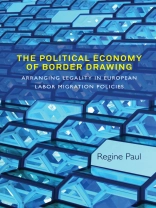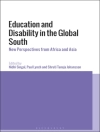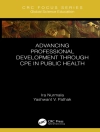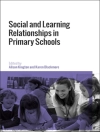The conditions for non-EU migrant workers to gain legal entry to Britain, France, and Germany are at the same time similar and quite different. To explain this variation this book compares the fine-grained legal categories for migrant workers in each country, and examines the interaction of economic, social, and cultural rationales in determining migrant legality. Rather than investigating the failure of borders to keep unauthorized migrants out, the author highlights the different policies of each country as “border-drawing” actions. Policymakers draw lines between different migrant groups, and between migrants and citizens, through considerations of both their economic utility and skills, but also their places of origin and prospects for social integration. Overall, migrant worker legality is arranged against the backdrop of the specific vision each country has of itself in an economically competitive, globalized world with rapidly changing welfare and citizenship models.
Innehållsförteckning
List of Figures, Tables and Boxes
Preface
Abbreviations
Introduction: Labor Migration Management: A Case for Interdisciplinary and Interpretive Policy Studies
PART I: BORDER-DRAWING AS A FRAMEWORK FOR MIGRATION POLICY
Chapter 1. Labor Migration Management as Meaningful Border-Drawing
Chapter 2. Border-Drawing across Capitalist Economies, Welfare States and Citizenship Regimes
Chapter 3. Contextualized Border-Drawing: Profiling Migration Histories and Policy Legacies for Comparative Analysis
PART II: BORDER-DRAWING IN GERMAN, FRENCH AND BRITISH LABOR MIGRATION POLICIES
Chapter 4. What Makes Migrant Workers ‘Legal’? Mapping Entry Regulation
Chapter 5. A “Tool for Growth”? The Shared Cultural Political Economy of Labor Migration Policies
Chapter 6. “Poles Don’t Even Play Cricket!” Embedding Labor Migration Policies in National Socio-Cultural Norms
Conclusion: Border-Drawing, Policy Analysis, and the Governance of Mobility in Europe
Documents and Interviews
References
Index
Om författaren
Regine Paul is a postdoc scholar with the How SAFE project on comparative risk regulation at the University of Bielefeld. She has published a number of scholarly articles and contributed to edited volumes on migration and mobility policies in Europe. She is also board member of the research network “European Integration and the Global Political Economy” at the Council for European Studies.












